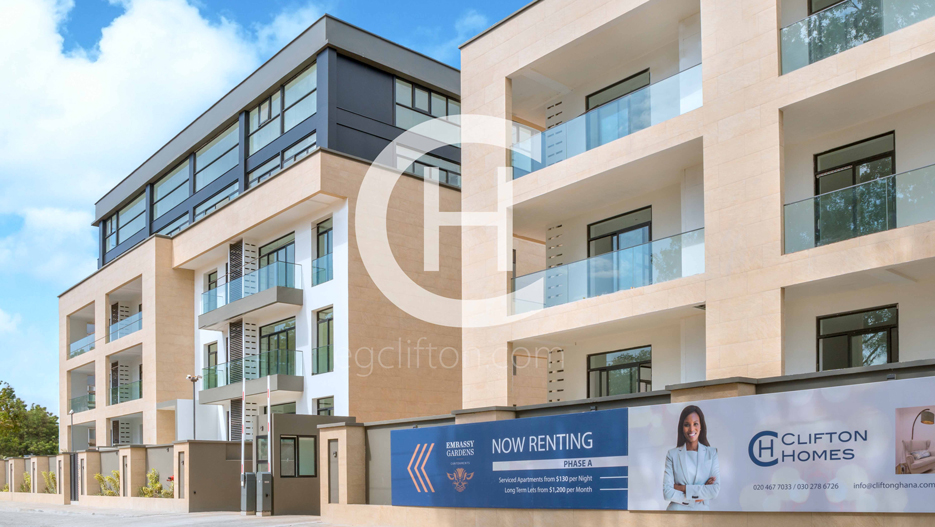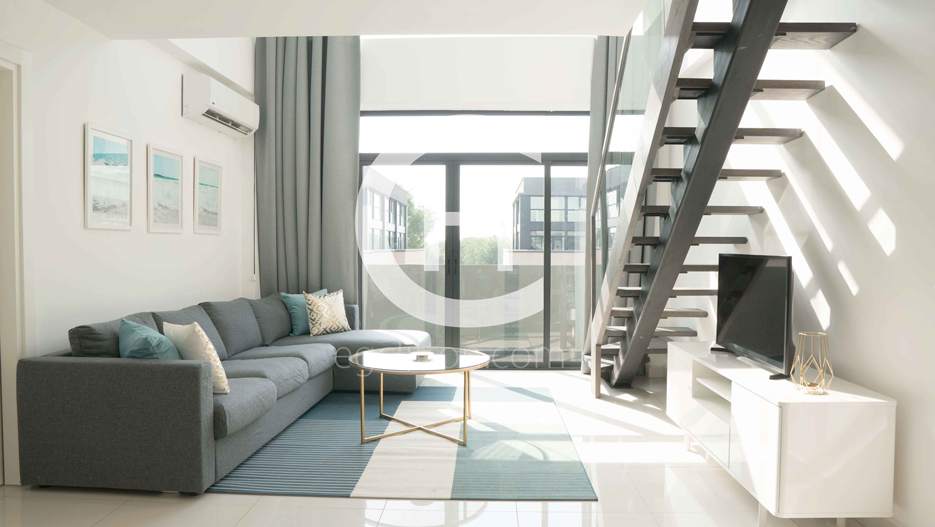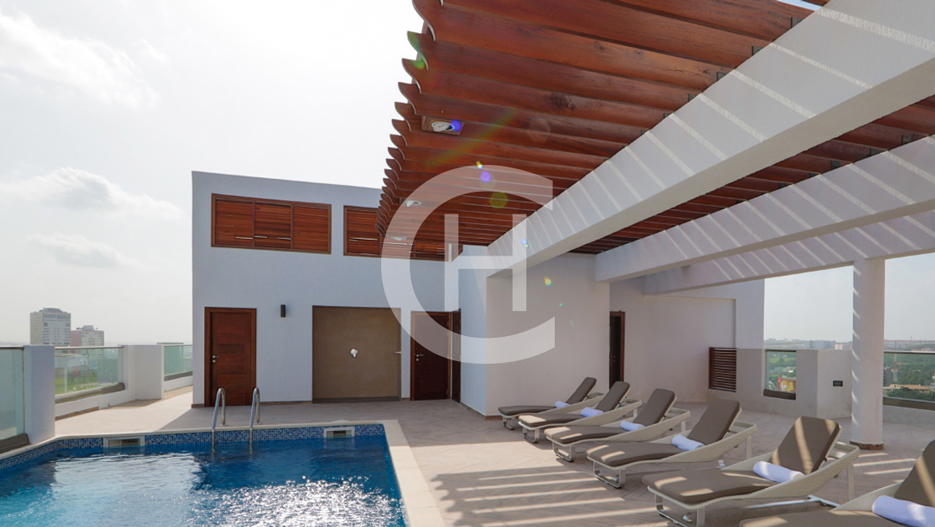Clifton Homes: Providing Stylish, Well-Designed Properties at a Sensible Price in Accra
Ann Brewin shares her assessment of the real estate sector in Accra and Ghana in 2019 and presents Clifton Homes, one of Ghana’s most trusted developers. The company is specialized in providing high-quality developments, located in the center of Accra, at market leading prices. She also discusses challenges and shares her vision for the future of Clifton Homes in the medium term.
Interview with Ann Brewin, CEO of Clifton Homes
What is your assessment of the real estate sector in 2019? What are the latest trends?
There are two main trends that we have seen over the last few years which we expect to continue. The first is the increasing residential density in the capital, which is the overarching change in this city over the last decade. When we set up Clifton Homes in 2010, people told us no one would buy apartments with open plan kitchens and that it just was not part of the mindset here and it was not going to work. But we could see the dynamics in Accra playing out just like any other capital city in the world. We were hearing the same stories. People who were in their mid-thirties, who had gone to top universities, who had gone abroad, they had done their stint working in investment banks in New York or the UK, and they had come back to Ghana and were expecting to buy 8-bedroom houses like their parents and they were not able to afford anything in the city center. Those kinds of stories, those economic dynamics driving the way the capital was changing are things that we have seen in other capital cities around the world and it is playing out here, too. The way that that increasing density molds the landscape in Accra will be partly down to planning regulations and partly down to the responsibility of developers and how we respond to that challenge, whether we put emphasis on creating green spaces, whether we consider parking and road infrastructure correctly, etc. Increasing density is not a negative thing. It is the future for this city. But the way it evolves will be determined by how much focus people put on the long-term benefit of the capital.
There are many other developers here. What are your competitive advantages? What do you offer that is different from other companies in the sector?
Our product in general is based on one key principle which is to ensure that customers do not have to compromise. What that really means is stylish, well-designed properties that are in central locations at a sensible price.
Partly, a lot of hard work and determination. We are very dogmatic about delivering on time and keeping our quality high. We are passionate about it. A lot of developers here have perhaps one project. We have always been in this for the long-term. That means that we need to keep our standards high and we need to worry not just about the next six months, but the next six years, the next ten years. That molds the way we behave. Linked to that is the fact that we design our buildings, we build them, we sell them, and we manage them after handover as well. There are a lot of developments here which look fantastic in the marketing 3Ds, but when they are delivered, the actual product does not match. Or, they look fantastic on handover, but within two years, the developer has left the project and the facilities management has not been up to scratch and they fall below standard. So, clients find it reassuring that we have a long-term relationship with them right from that initial sales contact through the build process, at handover, and then post-handover through facilities management. For those of our clients who buy for buy to let, they often use us as their lettings agent as well. That creates pressure on us because we cannot just build a development and flee. We have to try and impress our clients over the long-term. We are not perfect. I always say to people never to trust a developer that says they are perfect because no one is. But that long-term relationship means we try our very best to impress our clients, not just in the marketing brochure, not just when they take their keys, but five years afterwards as well.

Can you describe some of the projects you have? Which are the most important at the moment and how exactly are they distinguished from what is available?
Our product in general is based on one key principle which is to ensure that customers do not have to compromise. This sounds very nice but what that really means is stylish, well-designed properties that are in central locations at a sensible price. What we have seen in Accra is that quite often people have to compromise on their commute to work. They have to accept a two hour commute into work in order to afford a property that meets their criteria in terms of quality and standards. Or, they have to spend a million dollars to live somewhere centrally in the location they want, quite often even when the quality is not good. So, our aim has always been to try and tick those three boxes. Our properties tend to be 20-30% cheaper than anything else in the same area. The quality is always under our control because we do the construction in house. The interiors element is always done in house with our same team, many of whom have been with us for 6 to 7 years. Also, with location, to date, all our projects have been in central, prime areas such as Cantonments. That is the combination we are always looking for. In the case of Embassy Gardens, our most recent project, we have ticked all those boxes. It is 500 meters away from the US embassy. It is the most desirable location you can get in the city. We have made a number of changes. In every project we try to improve upon and learn from what we have done. We are very happy with the quality and design of the project. All of our clients get to view their apartment before making their final payment and make sure that they are happy with the quality and the finishings. The prices are incredibly competitive for that area. When we launched, we were selling studio apartments there for around the $80,000 mark. We have ticked those boxes for our product and then, where we have tried to go over and above with Embassy Gardens has been in the facilities. We refer a lot to designing for well-being. The city is changing. There is increased density, everyone knows about the traffic in Accra, and as the city has developed, people’s lifestyles have changed as well. The real estate sector has not necessarily responded fast enough to keep up with that. So, we try to design developments that are an antidote to that city life outside. At Embassy Gardens, all the cars are underground. If you are in Embassy Gardens you cannot see a car. That is very important when most people are spending one to two hours at least in the car every day. They look out their window and they can see and hear the traffic. It is non-stop. Embassy Gardens is designed in a courtyard structure way, with three sets of communal gardens, amounting to a full acre, each with a swimming pool. Also, part of that for us is about promoting well-being and a healthy lifestyle. Again, these dynamics are very familiar to people all over the world in developing cities. People walk less, they exercise less, they eat less healthily. Real estate has a role in responding to these socio-economic factors. At Embassy Gardens, we have a 350 square meter dual-story wellness complex. It has a gym, yoga, a spa, and three swimming pools. We hope that by creating these kinds of developments, that people’s lifestyles will actually benefit from them, that they will use them as a regular part of their weekly routine. That is a vision for us that we can help mold people’s behaviors via the physical surroundings that they live in.

What kind of clientele do you have? Is it the expat community? Ghanaians? What is your international reach?
The vast majority of our clients are West African, primarily Ghanaian. We do not rent our properties ourselves, even though there are a lot of developers that hold their own portfolio of letting stock and rent them out. We sell to clients and then, if they choose, they can engage us as an agent to rent them out on their behalf. We do that on either a long-term basis or a short-term serviced basis. We are there for competing with the hotel market in the area. When we are looking at tenants, the client base is far more diverse, about 50% international clients. The tenants are from all over the world but our owner base is primarily West African.
What are the major challenges you face in this sector as a developer?
One of the key challenges for us because we do our own construction will always be the long lead times in the construction sector. You cannot build a major development in two months, so there is always the risk of future planning and foreseeing challenges as they come up. But that has always been the case and it always will be the case in real estate. In terms of our company in particular, one of the challenges for us is the way that we have grown over the last 8 years. It has not been a linear growth. We go through growth spurts where we launch a new development and we might acquire 100 plus new clients in one or two days at a launch. We hope that is a challenge that we will continue to face going forward. It is a nice challenge to have, but it means that we always need to be prepared for those growth spurts and we need to make sure that our team is strong enough that service quality and provision do not falter at those periods of high growth. Also, internally, it is important to me as CEO that we maintain our corporate culture as we grow. We have a very meritocratic system here, whether it is on the construction site or our FM team here at the head office. People are given the independence to use their initiative and stand on their own two feet. As we grow, we need to find more and more people that fit in and absorb that culture. Ultimately, that is how we drive value in the business, by having a huge number of dedicated, professional people working together towards a common goal. That is where we are differentiated from developers that have contractors coming in and out for a few months here and there. We get that intangible added value in our business from our people. It will always be a challenge to maintain that and grow it, but it is one of my key priorities.

What do you want to achieve in the medium term, three years’ time? What is your vision for the company?
We are on our seventh development now. Each one has been an evolution from the previous one and I want that to continue. We have a pipeline set up for the next 5 to 8 years and we always want to be offering our clients something better and different. Our vision is to respond to the way the wider real estate landscape is changing in Accra and perhaps beyond Accra as well in the country at large. We want to help mold that real estate landscape in a positive way and help clients to have higher expectations of what they should get from the development community. It is happening already. People are becoming more demanding of developers in terms of delivering on time, delivering good quality, and delivering straightforward and honest service. All these things we have always strived to provide, but now, we can see the clients are raising their expectations and demanding it from us and our competitors. That is a good thing and it should be that way. Over the next 3 to 5 years, we want to meet those expectations as clients demand more from us and offer something different in each development so that we are creating incremental value and making a better product as we go along.
CONTACT DETAILS
- OFFICE: 34 Senchi Street, Airport Residential, Accra
- PHONE: +233 (0)20 467 7033 / +233 (0)30 278 6726
- EMAIL: info@cliftonghana.com
WEBSITES
- www.cliftonghana.com
- www.egclifton.com
- www.thelennox.com
- www.loxwoodhouse.com
- www.thebantree.com
- www.atlasghana.com
INTERVIEWS
- Clifton Homes: Providing Stylish, Well-Designed Properties at a Sensible Price in Accra
- Interview with Ann Brewin of Clifton Homes: The Best Luxury Real Estate Developer in Ghana
COMPANY NEWS
- Clifton Homes Charity Run raised over $5,000 for New Horizon Special School in Accra
- Accra’s Largest Residential Real Estate Developer Celebrates 10 Years of Development
- Clifton Homes: Ann Brewin Awarded Female CEO of the Decade at the Ghana CEO Summit
- Loxwood House by Clifton Homes: Experience Contemporary City Living in the Heart of Accra
- The Atlas: City Suites and Apartments a Minute Away from Ghana’s International Airport
VIDEOS
- Assessment of the Real Estate Sector in Accra by Ann Brewin of Clifton Homes
- Real Estate Development in Ghana: Competitive Advantages of Clifton Homes
- Embassy Gardens: A High-Quality Development Located in Cantonments, Accra
- Real Estate Market in Accra: Overview of Clifton Homes’ Clientele by Ann Brewin
- Challenges of Clifton Homes, One of Ghana’s Most Trusted Real Estate Developers
- Real Estate Sector in Ghana: Vision for the Future of Clifton Homes by Ann Brewin
- Discover Embassy Gardens in the Heart of Accra’s Prestigious Diplomatic District
- Clifton Homes: Discussing the Impacts of COVID on the Real Estate Market in Accra
- Loxwood House: Clifton Homesʼ Latest Real Estate Development in Tetteh Quarshie
- Momentum and Integrity: Ann Brewin Shares Clifton Homes’ Core Values and Philosophy
- Luxury Lifestyle Awards: Clifton Homes Awarded Best Luxury Real Estate Developer
- Ghana Real Estate: Clifton Homes, An Environmentally Conscious Real Estate Developer
- Clifton Homes Set on Delivering the Best Value and Experience at a Competitive Price
- The Bantree: Clifton Homes’ Latest Development Experiences Remarkable Demand in Accra
- Location, Quality and Value: Ann Brewin Discusses Clifton Homes’ Competitive Advantages
- Global Economic Downturn: Ann Brewin Unveils Clifton Homes’ Resilience and Reliability
- The Lennox: Your Elite Retreat for Short-Term Stays or Long-Term Rentals in the Heart of Accra
FAIR USE POLICY
This material (including media content) may not be published, broadcasted, rewritten, or redistributed. However, linking directly to the page (including the source, i.e. Marcopolis.net) is permitted and encouraged.